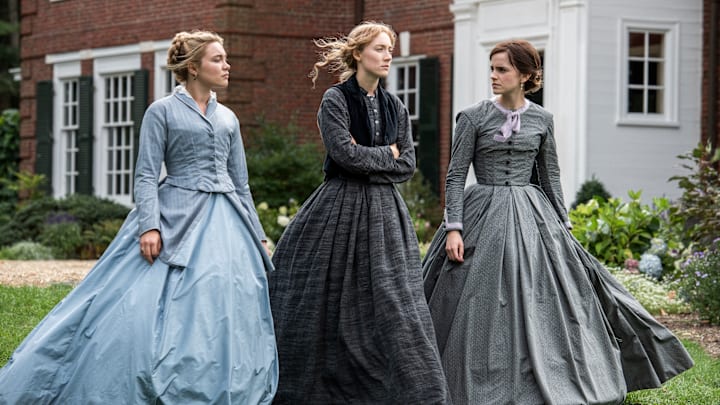I distinctly remember my first encounter with Little Women. The big names had attracted me to the 2019 film adaptation, and I was absolutely in awe when I left the theater. It had stuck with me, but it took me a surprisingly long time to read the novel. I was even more in awe when I put down the book. A recent reread has inspired me to write about why the novel holds up even though it's from a different era
A Bit of Backstory
Louisa May Alcott wrote four books that make up the Little Women Universe: Little Women, Good Wives, Little Men, and Jo's Boys. Little Women and Good Wives usually make up the story we're familiar with, such as the 2019 film adaptation.
Why Little Women is a Classic
The novel takes place in 1860s Massachusetts, so it is very much rooted in that context. This can be seen in its exploration of class, travel, marriage, a woman’s ambition and talent, education, and the roles of being a wife and mother. However, the novel’s emphasis on being kind, good, and being one’s best self shows its themes are timeless.
The March family is introduced as full-fledged individuals with unique personalities, interests, and relationships. Mrs. March, and on occasion Mr. March, are the guiding lights of the family because they love their daughters and want them to grow. They allow for advice, but also for the girls to learn from their mistakes. Each sister has their challenges, flaws, and successes that add to their personal growth. The novel is about the March sisters growing into themselves in a coming-of-age story.
While each has different circumstances, the qualities and experiences of the March sisters can be relatable. Jo is a favorite because she is opinionated and passionate, seeking to do well for herself and others, but can also make mistakes in temper and judgment. She isn't afraid to be herself and be true to what she feels is right. Meg is responsible, enjoys some of the finer things, and tries to make choices that she feels are acceptable. Beth is exceptionally kind, good, and selfless, and tries to do right by others. Amy is admittedly vain and at times temperamental, but also a keen observer, realistic, and caring.
Friendship and love are also recurrent aspects of the novel. Laurie is a childhood friend of the March sisters, and we see his development along with the girls. They encourage one another's creativity, pursuits, and imagination. While neither Laurie, nor their friendships are perfect, they grow with the girls.
The novel highlights the themes of growth, family, and self-discovery, and the interconnected nature of them all. There are people who encourage growth, and oftentimes that's loved ones: they see us at our best and worst, but can laugh with us, encourage us, and grow with us. Little Women beautifully captures the ability to learn from others and grow with them, particularly in sisterhood and friendship.
